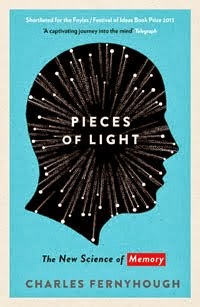The process of writing The Baby in the Mirror made me think about this question in a different way. Intruding on Athena's privacy might be reasonable if there were serious literary and scientific work to be done, but could it be justified in the cause of pure entertainment? I want the book to entertain, of course (the same ambition holds for this blog, in which I draw on both children's experience), but I also hope that readers will learn from it. Or is an enjoyable book its own justification? Is this an ethical question or an aesthetic one?
One step that I have not been willing to take has been to submit to the more obvious designs of the television industry. I'm suspicious about the medium for a few reasons; above all, I suspect that any concerns for an educational outcome would likely get drowned out by the demands of primetime. After experiencing the tremendously sensitive way the Guardian and Sunday Herald handled our story, for example, I doubt that TV could similarly ensure our privacy and right to have a say in the portrayal. At least, that's the feeling I get from watching reality shows such as Child Of Our Time, in which the privacy of the families involved rarely seems anyone's top priority.
The growth of reality TV has put more ordinary kids onto our screens than ever before. This week I got an alert on this topic from Zero To Three, the not-for-profit US-based organisation concerned with children in the first three years of life. The statement relates to a new NBC programme called "Baby Borrowers", in which five teenage couples will each briefly 'adopt' someone else's baby as part of a social experiment in fast-tracking adolescents into adulthood. In Zero To Three's view, the programme "exploits very young children in the pursuit of entertainment".
The exploitation charge is a serious one, and one that I might have to answer to as well. I can't get all superior about the ethical treatment of child participants when, to some people's minds, I might have gone too far myself in turning the camera onto Athena so closely. I am also uneasy about passing judgement on a TV series I have not watched for myself. But Zero To Three's alarm call shows that some people at least are putting the rights, privacy and needs of children above all other concerns, and backing up that respect for babies and toddlers with good science.
I was very touched by Paul Riddell's kind review in today's Scotsman. I hope there is a happy ending for him and his family as well.




